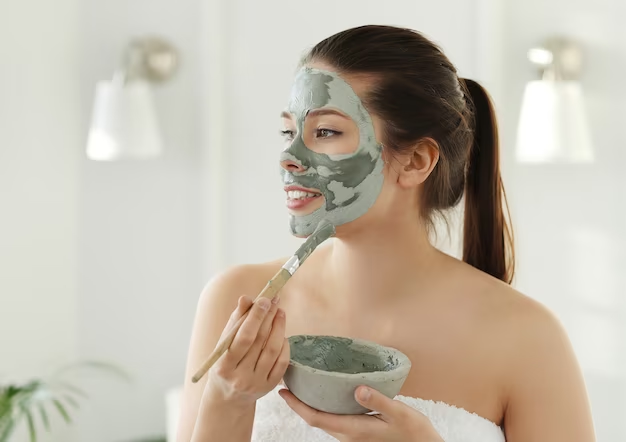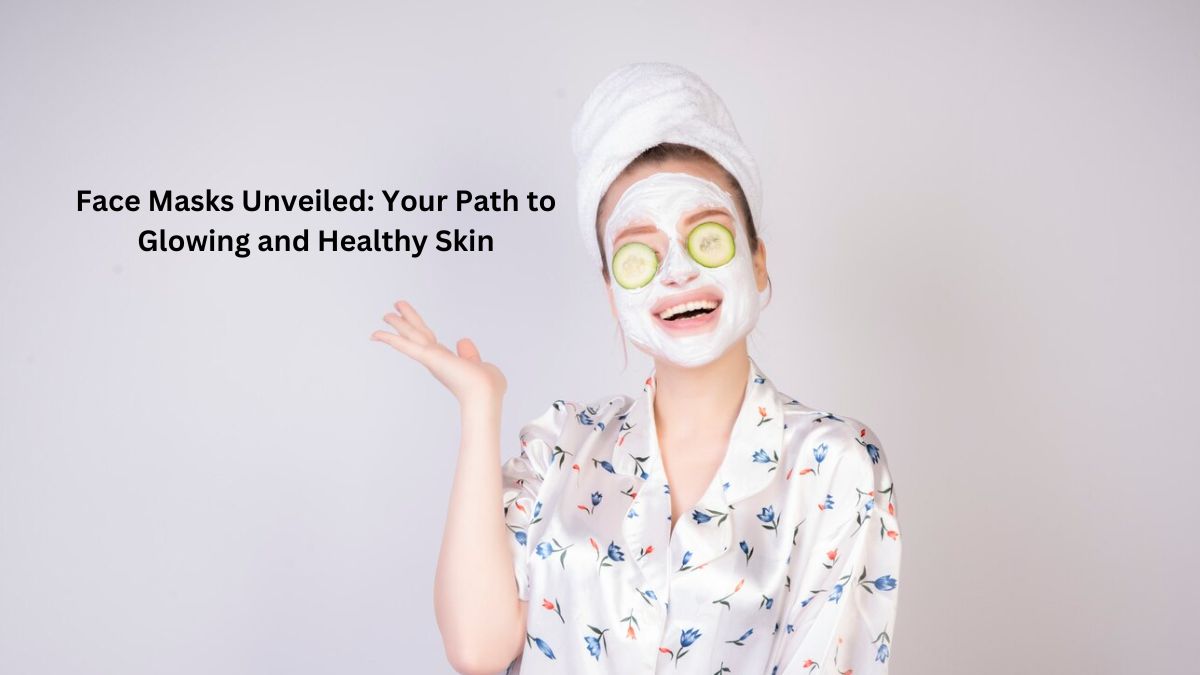Certainly, here’s a detailed article about face masks, covering their types, benefits, how to use them, and more.
In the world of skincare, face masks have emerged as an essential tool for achieving radiant and healthy skin. These transformative products offer a range of benefits, catering to various skin concerns and types. From hydrating parched skin to combating acne, the versatility of face masks is truly remarkable. In this comprehensive guide, we’ll delve into the different types of face masks, their benefits, and how to incorporate them into your skincare routine.
Types of Face Masks: A Multitude of Choices
Face masks come in various formulations, each designed to address specific skin concerns. Here are some common types of face masks:
- Sheet Masks: These are pre-soaked fabric masks with holes for eyes, nose, and mouth. Sheet masks are soaked in a serum that can contain a variety of ingredients such as hyaluronic acid, antioxidants, and vitamins. They’re great for a quick hydration boost.
- Clay Masks: Clay masks contain natural clay like kaolin or bentonite, which help absorb excess oil and impurities from the skin. They are ideal for oily or acne-prone skin.
- Gel Masks: Gel masks are water-based and provide a cooling and soothing sensation. They are great for hydrating and calming the skin.
- Cream Masks: Cream masks are rich and moisturizing, perfect for addressing dryness and adding a burst of moisture to the skin.
- Exfoliating Masks: These masks contain gentle exfoliating agents like enzymes or alpha hydroxy acids (AHAs) to slough away dead skin cells, revealing a smoother complexion.
- Peel-Off Masks: Peel-off masks dry to a rubbery consistency and are peeled off to remove impurities and dead skin cells from the surface.
Benefits of Using Face Masks:

- Deep Hydration: Hydrating masks infuse the skin with moisture, helping to restore its natural radiance and suppleness.
- Detoxification: Clay and charcoal masks draw out impurities and excess oils, leaving the skin feeling clean and refreshed.
- Exfoliation: Exfoliating masks gently remove dead skin cells, promoting a brighter complexion and smoother texture.
- Targeted Treatment: Different masks contain ingredients tailored to specific concerns, such as acne-fighting ingredients, anti-aging compounds, or brightening agents.
- Relaxation: Applying a face mask can be a soothing ritual that encourages relaxation and self-care.
Incorporating Face Masks into Your Routine: A Step-by-Step Guide
- Cleansing: Before applying any face mask, ensure your skin is clean and free from makeup and impurities.
- Exfoliation (optional): If using an exfoliating mask, apply it on damp skin and gently massage before letting it sit.
- Application: For sheet masks, unfold and apply onto your face, aligning the holes with your eyes, nose, and mouth. For other masks, use your fingertips or a brush to evenly apply the product.
- Relax: Once applied, take this time to unwind and relax. Listen to soothing music, read a book, or meditate.
- Time’s Up: Follow the recommended time mentioned on the product label. Leaving the mask on for too long can lead to over-drying.
- Rinsing or Peeling: For most masks, gently rinse off with lukewarm water. For peel-off masks, carefully peel from the edges.
- Follow-Up: After using a face mask, apply your regular toner, serum, and moisturizer to lock in the benefits.
Also read more about how to choose prefect serum
Conclusion:
Face masks are more than just a skincare trend; they’re a powerful tool for achieving healthy and radiant skin. By incorporating different types of masks into your routine, you can address a variety of skin concerns while enjoying the ritual of self-care. Whether you’re looking to hydrate, detoxify, or exfoliate, the right face mask can make a significant difference in the health and appearance of your skin. So, next time you’re treating yourself to a pampering session, don’t forget to reach for your favorite face mask and let its magic unfold.
Of course, I’d be happy to help you create a set of Frequently Asked Questions (FAQ) related to face masks. Here’s a list of questions and answers that could be included in your FAQ section:
Frequently Asked Questions About Face Masks
1. What are face masks, and how do they work?
Face masks are skincare products applied to the face to deliver specific benefits. They work by providing concentrated ingredients that target various skin concerns, such as hydration, detoxification, exfoliation, and more.
2. What are the different types of face masks available?
There are several types of face masks, including sheet masks, clay masks, gel masks, cream masks, exfoliating masks, and peel-off masks. Each type offers unique benefits based on its ingredients and formulation.
3. How often should I use a face mask?
The frequency of face mask use depends on the type of mask and your skin’s needs. Generally, using a hydrating or calming mask 2-3 times a week is suitable, while exfoliating masks might be used less frequently (1-2 times a week).
4. Can I use multiple face masks in one session?
Yes, you can multi-mask by applying different masks to various areas of your face based on their specific benefits. For instance, you might use a clay mask on your T-zone to control oil and a hydrating mask on your cheeks.
5. How long should I leave a face mask on my skin?
Follow the instructions on the product label for the recommended duration. Typically, most masks are left on for 10-20 minutes, but some may require less or more time.
6. Can I use face masks if I have sensitive skin?
Yes, there are face masks designed specifically for sensitive skin. Look for masks with gentle and soothing ingredients to avoid potential irritation.
7. Should I cleanse my face before applying a face mask?
Yes, it’s important to start with clean skin before applying a face mask. Cleansing removes makeup, dirt, and excess oil, allowing the mask’s ingredients to penetrate effectively.
8. Are face masks suitable for all skin types?
There are face masks for every skin type, from oily to dry, combination, and sensitive. Choosing a mask formulated for your specific skin concerns will yield the best results.







































